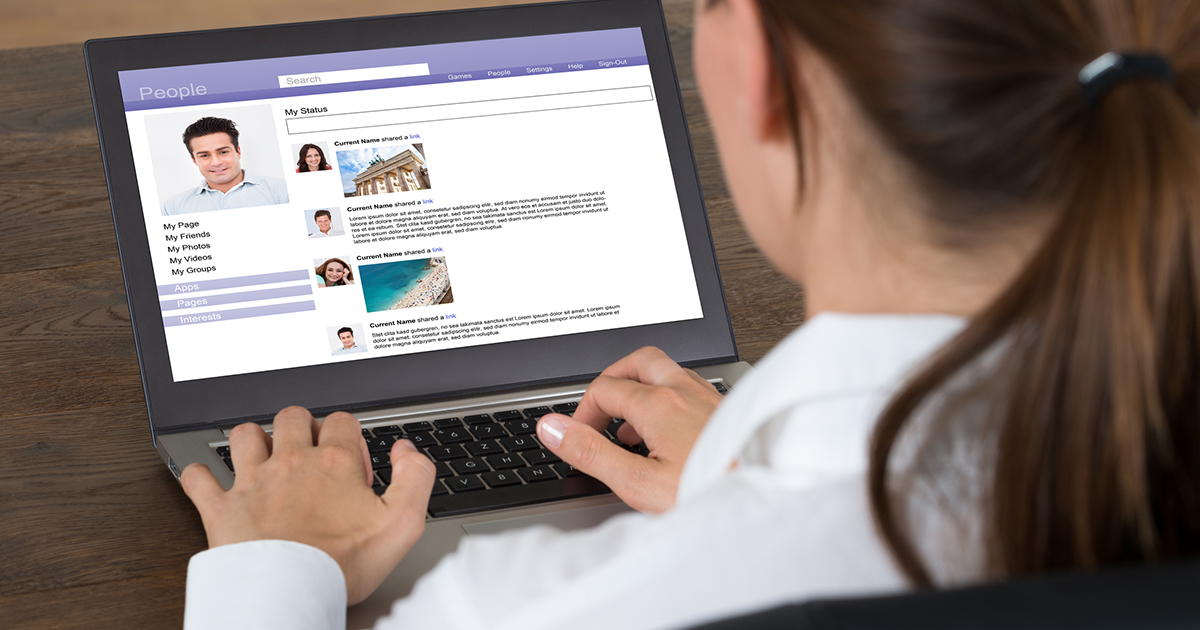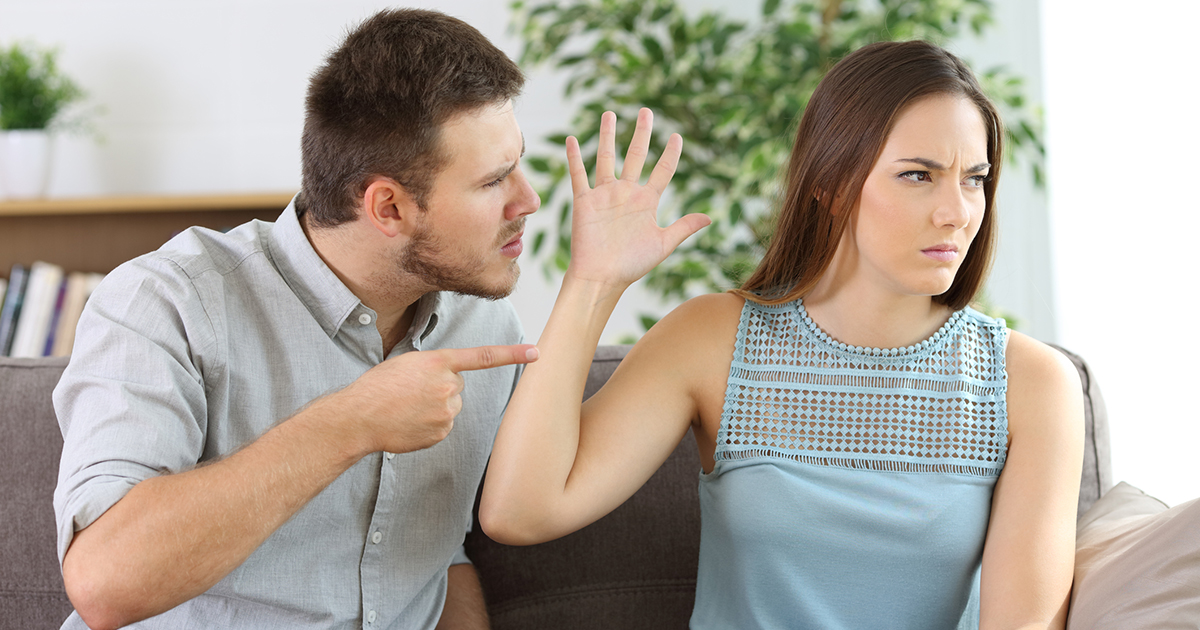Swipe Right Or Left; The Connection Between Online Dating & Your Mental Health
We all know couples who have met and subsequently have found ‘the one’ through online dating apps, such as Tinder and Bumble. The fact is, online dating has become so common in today’s society as it saves daters a lot of time and effort when looking for that special someone when compared to the traditional face-to-face meetings. With a world of romantic and sexual possibilities dictated by a single swipe of the finger, are there negative side effects online dating can have on your mental health? Swipe right to find out how online dating can cause depression, anxiety, and lower one’s self-esteem if a dater is not mindful of their potential partner(s).
Why Should I Participate In Online Dating?

To put it quite simply, online dating in today’s rapidly changing and technology-based culture, sites such as eHarmony, match.com, OkCupid, and Plenty of Fish have become incredibly popular in the last few years - so much so that the stigma often associated with online dating has significantly diminished. Many of us depend on algorithms and location-based databases to match us with a suitable partner. According to Pew Research Center, an overwhelming amount of Americans believe these sites are a great way to meet new people, with fifteen percent of adults claiming they have used either a mobile app or online dating service at least once. The popularity of these sites is majorly being driven by time, as online dating presents itself as a practical solution for many time-crunched individuals, who want to meet and possibly strike up a relationship and do so fast. Statistics suggest about one in five relationships begin online, and it is estimated that by 2040, seventy percent of long-term relationships will have its roots in online sites.
Keep reading to find out the first problem many online daters experience: the problem with lying and ghosting from a potential partner.
The Problem With Lying

So more than likely this isn’t new information to you: not surprisingly, individuals lie on their profiles and with their pictures to appear more of a catch than they truly are. A published study from OpinionMatters of over 1,000 online daters in the U.S. and the U.K. determined a total of fifty-three percent of American participants admitted they lied on their online dating profile, with women apparently lying more often than men, especially when it comes to appearance and profile pictures. Over twenty percent of women posted photos depicting their younger selves, whereas over forty percent of men lied about their financial situation and having a better job than they actually do, whereas a third of women did it too.
Other significant problems that many online daters can run into is being ‘catfished,’ or ‘ghosted.’ Catfished is when an individual makes a connection online with another person, but the person on the other end is deceiving them and are not who they say they are and usually look nothing like their online pictures. Being ghosted is when a dater begins seeing someone, who then out of the blue completely stops all communication and disappears out of their life with no explanation. These two distinct forms of lying and deception can greatly hurt a person’s self-worth, and make them question what is wrong with them as well as make them feel unintelligent. All of which can spiral into other mental health issues, such as depression and anxiety.
Next, find out how having too many choices can cause anxiety and stress for online daters.
Too Many Choices

How do you choose between what seems like good, suitable matches? Furthering the idea of how having too many choices can harm rather than benefit you, some experts argue the overwhelming amount of choice we have today leads to a ‘throwaway society,’ whereas potential mates become disposable after they have met their intended purpose or don’t live up to an individual’s standards. Therefore, does online dating create mental stress as well as hostility between the sexes and potential partners? Considering how easy it is to dislike, ignore, or even delete an individual on a whim, many online daters have experienced being ‘ghosted,’ or ‘catfished,’ which can damage a person’s self confidence immensely as the entire experience is dehumanizing to be rejected or lied to in such a harsh manner.
The amount of choice now available at our fingertips can significantly hinder the development of monogamous romantic relationships between people, which can create intense anxiety for many users, while reducing the amount of mutual trust and respect you not only have for yourself but in others. Daters might start asking themselves, "Are they still meeting other people?" "Will I be ghosted after this date?" "Is there someone better waiting for me on the next swipe?" which can make many users feel stressed out about their choices and whether the person they are interested could be the right match.
Next, find out how online dating can bring out some of the worst personality traits in you.
It Can Bring Out Your Worst Personality Traits

In one study conducted by the US Association of Psychological Science discovered reviewing or dating multiple candidates results in individuals becoming more judgemental and harsh on these sites. They were more inclined to dismiss someone who didn’t meet all of their expectations versus if they were meeting that individual face-to-face. It’s true these dating apps essentially mean you will have an endless supply of dates lining up around the block for you, but is this a good thing? This vast amount of potential romantic options has definitely changed the way we date and view individuals, especially if they don’t have everything on our ‘dream guy or girl’ checklist.
One of the most significant issues with this is it can not only cause you to become bitter and hostile towards potentially great matches, but it can also make you narcissistic and self-entitled to get what you want (and it isn’t just about you). Not to mention it can also cause you to lose a truly wonderful individual who could’ve been the right person for you. Yes, it’s fantastic to have standards and hold individuals to these expectations, however, don’t get caught up in what looks good on paper. Instead, judge someone based on their personality and who they are, versus how they physically look or who they appear to be.
Next, discover how expectations can damage your self-worth and make you question the dating scene.
Set Realistic Expectations

Listen, it’s an awesome thing to have expectations and set of standards you not only hold yourself to but your presumed partner. However, the problem with expectations is sometimes they can let you down and distort your view of a potential partner. There is also the issue with two people having very different expectations of one another, such as many women seeking a long-term commitment finding men simply looking for sex, or vice-versa. Although there are men on many of these sites who are genuinely looking for a relationship, many men who are looking for a more casual encounter assume if a woman is online, she must be down for it too (which is not always the case). This can become incredibly stressful for any individual to endure, and might even develop into anxiety when dating, as many women (and men) might feel pressured to do something they are not one-hundred percent comfortable with. Point being, don’t let online dating shatter your expectations or discourage you from finding a genuine connection.
Keep reading to learn the devastating effects rejection can have on your self-esteem and mentality.
Rejection And Self-Esteem

Let’s face it: rejection sucks, and it isn’t easy to cope with. Using a dating site or app can be fun, satisfying, and may even boost your self-confidence at first. However, as time passes and match after match occurs, there is a lot of exposure to rejection. Low match rates, receiving cruel or rude messages, and even ghosting can make daters more cynical and even apprehensive to continue to be apart of the dating scene. Many experts - including therapists - have stated they see more anxiety and depression develop in clients who use dating apps on a regular basis due to the amount of rejection they face. Over time, the rejection an individual experiences on dating sites and apps can have a negative effect on how they feel about themselves and how they look, as well as lead to daters developing a ‘guard’ to protect themselves from the potential of getting hurt. Research has specifically shown male users on Tinder to have a low rate of matches, and only fifty percent of peopleactually message back.
The consequence of rejection on these apps is that some daters will begin to question their physical appearance, personality traits, online conversational skills, as well as the general intention of potential partners. Some users may even doubt themselves and their value, which may result in extreme anxiety of self-perceived flaws and imperfections. Another study conducted by researchers at the University of North Texas discovered Tinder users had lower self-esteem, poor body image and satisfaction with their appearance, and lower psychosocial well-being compared to non-users. All of which they believe is directly linked to an increase in constant rejection and frustration many users experience on the app.
Continue reading to unearth how online relationships often appear that they are not built to last.
Online Relationships Are Not Always Built To Last

Individuals who do manage to find someone they want to marry face an uphill battle, as research conducted by Michigan State University found relationships that start out online are twenty-eight percent more likely to break down in the first year compared to couples who met face-to-face. The same study also discovered couples who met online had a three times divorce rate compared to couples who met in a more organic social setting. However, there is a glimmer of hope amongst these statistics. Around five percent of Americans who are currently married or in a committed relationship met their significant other online.
Dating apps can also have surprising side effects on relationships in general; it can encourage users not to put any effort into current relationships as they may feel there is someone better awaiting them on the next swipe. The problem with this notion is this type of attitude can create a sense of unhappiness for an individual in their current relationships, similar to the kind of disposable human culture the online dating world is creating, as previously mentioned. Experts collectively agree it isn’t the app itself causing these issues, but rather how the app is used. In order to avoid these adverse psychological and emotional effects, users need to change how they engage with the app and others online.
To put it simply, be more mindful and use common sense when dating, and know that even if things don’t work out, the right one is out there for you—just be patient and don’t lose hope!